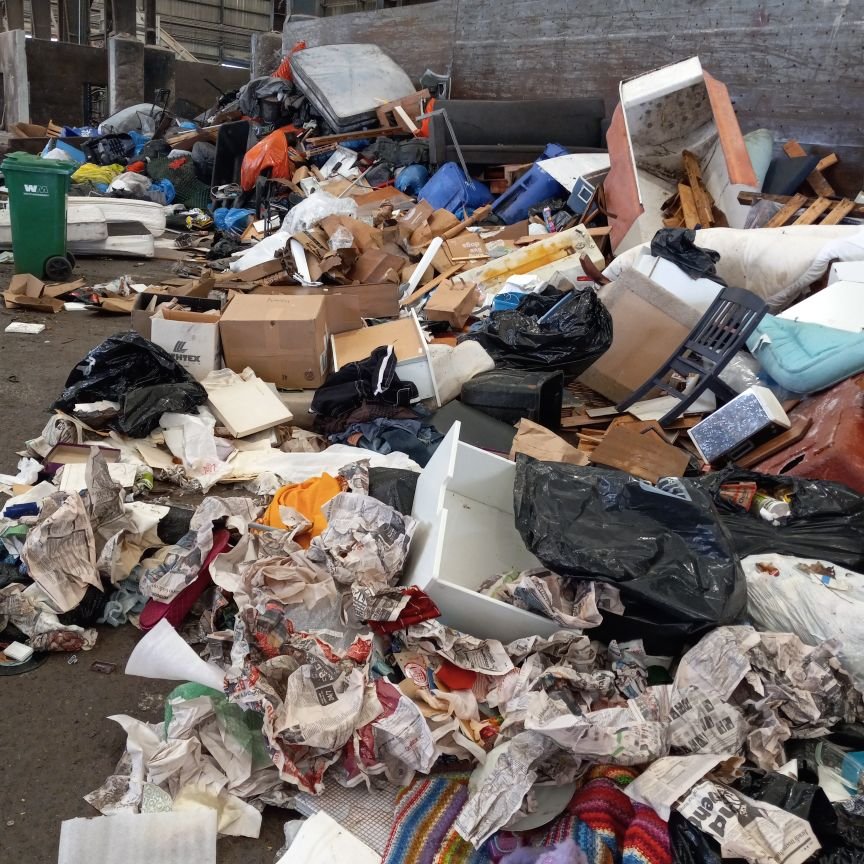Comprehensive Solutions for Industrial Waste Water Treatment by Reclaim Waste Melbourne
Comprehensive Solutions for Industrial Waste Water Treatment by Reclaim Waste Melbourne
Blog Article
Enhancing Environmental Sustainability Via Strategic Liquid Waste Elimination Solutions
In the realm of environmental sustainability, the reliable management of fluid waste stands as a vital focal point in protecting our environments and securing public health and wellness. Let us embark on a trip to reveal the transformative potential of calculated fluid waste management methods in enhancing ecological sustainability.
Importance of Liquid Waste Administration

Among the key reasons why liquid waste management is important is its straight effect on public health. Without treatment or improperly treated fluid waste can contain harmful microorganisms and chemicals that pose significant wellness dangers to areas. Polluted water sources can cause waterborne diseases, influencing both human health and wellness and communities. Proper management of liquid waste aids avoid these health and wellness risks and makes sure the wellness of the populace.

Challenges in Liquid Garbage Disposal
Provided the critical value of correct fluid waste administration in protecting public health and wellness and environmental well-being, it is necessary to attend to the countless difficulties connected with liquid waste disposal practices. One considerable obstacle is the lack of ample infrastructure for the collection, therapy, and disposal of liquid waste. Many areas, especially in establishing countries, battle with not enough facilities and sources to handle the enhancing volume of liquid waste created. This brings about inappropriate disposal approaches such as unloading in water bodies or unauthorized garbage dumps, presenting significant health threats and ecological pollution.
An additional challenge is the visibility of unsafe substances in fluid waste, including chemicals, hefty metals, and microorganisms. Proper recognition and therapy of these hazardous elements need customized understanding and devices, which may not always be conveniently available. Furthermore, the cost of applying secure disposal practices can be prohibitive for some districts and industries, bring about non-compliance and further environmental damages.
Lasting Liquid Waste Solutions
In the middle of the pushing need for effective liquid waste administration techniques, the critical of lasting solutions emerges as a critical problem for ecological preservation and public health. Lasting liquid waste options incorporate an array of innovative innovations and methods aimed at decreasing the ecological influence of waste disposal.
Additionally, lasting liquid waste solutions focus on the preservation of water resources with the application of water recycling and reuse methods. By dealing with and repurposing wastewater for non-potable applications like watering or industrial processes, these options contribute to water preservation efforts and lower the strain on freshwater sources. In general, the integration of sustainable fluid waste services not only sustains ecological sustainability but also cultivates a much healthier and more durable society for future generations.
Advantages of Strategic Removal Practices
Purposefully applied removal practices play a crucial role in maximizing liquid waste management systems for ecological sustainability and public health protection. By embracing critical elimination practices, organizations can considerably minimize the ecological effect of fluid waste disposal.
In addition, these methods advertise resource recuperation by allowing the removal of important products from liquid waste streams. This not just reduces the dependence on virgin resources yet likewise supports the circular economy principles of reuse and recycling. In addition, critical elimination practices can enhance operational a knockout post efficiency and cost-effectiveness by enhancing waste management procedures and maximizing source allocation. In general, the benefits of tactical elimination techniques expand past ecological sustainability to include financial benefits and improved public health outcomes.
Carrying Out Effective Environmental Strategies
Efficient implementation of environmental approaches is extremely important in achieving lasting liquid waste administration methods. To begin with, business have to conduct detailed ecological evaluations to determine potential dangers and influences connected with their liquid waste disposal processes. By understanding the ecological ramifications of their procedures, organizations can develop targeted techniques to lessen injury to environments and public wellness.
Furthermore, carrying out efficient ecological methods involves establishing clear goals and goals for fluid waste monitoring - Industrial waste water treatment. These goals ought to specify, quantifiable, possible, appropriate, and time-bound (WISE) to guarantee responsibility and track progress in the direction of sustainability targets. Business can likewise leverage modern technology and technology to enhance liquid waste therapy processes, lower source intake, and enhance overall efficiency
Partnership with regulatory firms, stakeholders, and environmental professionals is another key element of successful technique application. By engaging with external partners, organizations can acquire beneficial insights, gain access to sources, and make sure conformity with environmental regulations and guidelines. Overall, a calculated and aggressive strategy to environmental monitoring is crucial for reducing ecological threats and advertising lasting sustainability in liquid waste removal practices.
Conclusion
To conclude, calculated liquid waste removal remedies play a critical duty in improving environmental sustainability. By attending to the challenges in fluid garbage disposal and executing sustainable practices, we can lower the adverse effect on the setting - Liquid waste removal. It is necessary to focus on effective ecological techniques to make sure the long-term wellness and wellness of our planet
By applying pop over to this site reliable waste monitoring practices, such as correct collection, treatment, and disposal approaches, the dangers basics linked with liquid waste can be significantly minimized.
Provided the important value of proper fluid waste management in guarding public health and wellness and environmental well-being, it is important to resolve the various difficulties connected with fluid waste disposal practices. Lasting fluid waste solutions include an array of cutting-edge innovations and techniques aimed at reducing the environmental impact of waste disposal.Strategically carried out removal practices play an important role in optimizing liquid waste management systems for environmental sustainability and public health and wellness protection. In general, a calculated and positive strategy to environmental management is essential for mitigating ecological threats and advertising long-lasting sustainability in liquid waste elimination practices.
Report this page